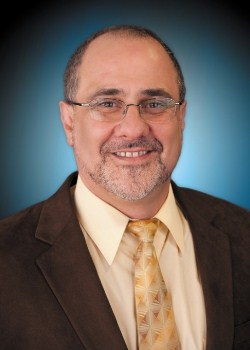当前位置
Eggs, exactly when you want them

It seems that everything in our world is changing. It is a sunny day, the temperature outside is 80°F in December in America's heartland, a nine-year-old girl is visiting the doctor because she is developing breasts, and I had a meeting with a 54-year-old woman who wants to have a child. It seems that the physical world and the biological world are transforming almost before our eyes. Over the last hundred years we have seen the life expectancy of a woman double, going from 40 years to over 80 years. As a result our society is changing. Our young girls grow up and dream of having "it all": an education, a satisfying career, and a family exactly when they are ready. Unfortunately some things don't change quite as quickly.
The reality is that a newborn female is born with approximately 2,000,000 oocytes or immature eggs. The moment she is born, the eggs begin to die slowly, and by the time she reaches puberty, she is down to approximately 400,000 primordial eggs. During a woman's early fertile years it is believed that these eggs begin to wake up in groups of about 800 to 1000 eggs at a time and start a 60 to 70 day journey which will end with only one or two of these eggs reaching maturity - the second stage of division/meiosis where they are ready to be fertilized. Once the eggs "wake up" they start to die off even faster, to allow for the selection of the "winning egg".
A woman's egg supply dwindles predictably over the years... so that by the time a woman reaches age 30, there is roughly a 10% chance that she would fall into the category of "diminished ovarian reserve", and a 25% chance that her egg supply would be in deep trouble by age 35. Experts believe that no more than 20 or 30% of women will be able to conceive a child on their own after age 40, no matter how successful she's been in the past at doing so. There are many days where I think to myself, after I met a young couple who are dealing with a significantly low egg supply, that my reproductive medicine colleagues and I are derelict in our duties. We should have road signs put up, the way the American Cancer Society does begging people to stop smoking. Our signs should read "get pregnant before you're 30". My colleagues and I would be thrown into Political Correctness Prison.
Well, science and medicine are fighting back. Today we can identify women who have a low egg reserve using a variety of tests. At my program, the Fertility Partnership, it is called the Fertility Profile. Basically it is an opportunity for a 30-year-old woman to check and see what is the likelihood that she will have an issue in the near future.
In October 2012, the American Society of Reproductive Medicine (ASRM) announced that they had reviewed all the literature and have deemed the freezing of human eggs to be safe and just as effective as freezing human embryos. Oocyte freezing is no longer considered "experimental". Advances such as "vitrification", a technique where the eggs are frozen very quickly as opposed to a slow process, have dramatically improved the science of freezing and thawing human eggs. The change in the status of oocyte freezing from experimental to routine now opens the way to any and all fertility programs to offer a woman the opportunity to freeze her eggs when she is young so that she may have them when she wants them.
Imagine a 30-something year old woman who is working on completing her PhD, or climbing the corporate ladder, or just still searching for "Mr. Right". She can reliably store some of her eggs now so that she can start her family later when the time is right. Think of all the pressure that is now removed from that person. I have spoken to so many women that seem to be gnawed away by the desperation that their biological clock has ticked away too long. Our technology is catching up to our changing society. But this is only the beginning. There are many more advances coming.


